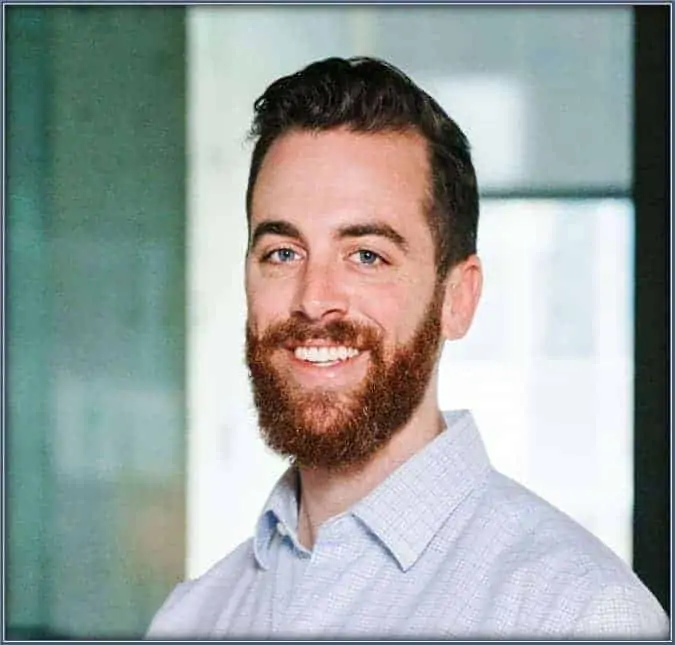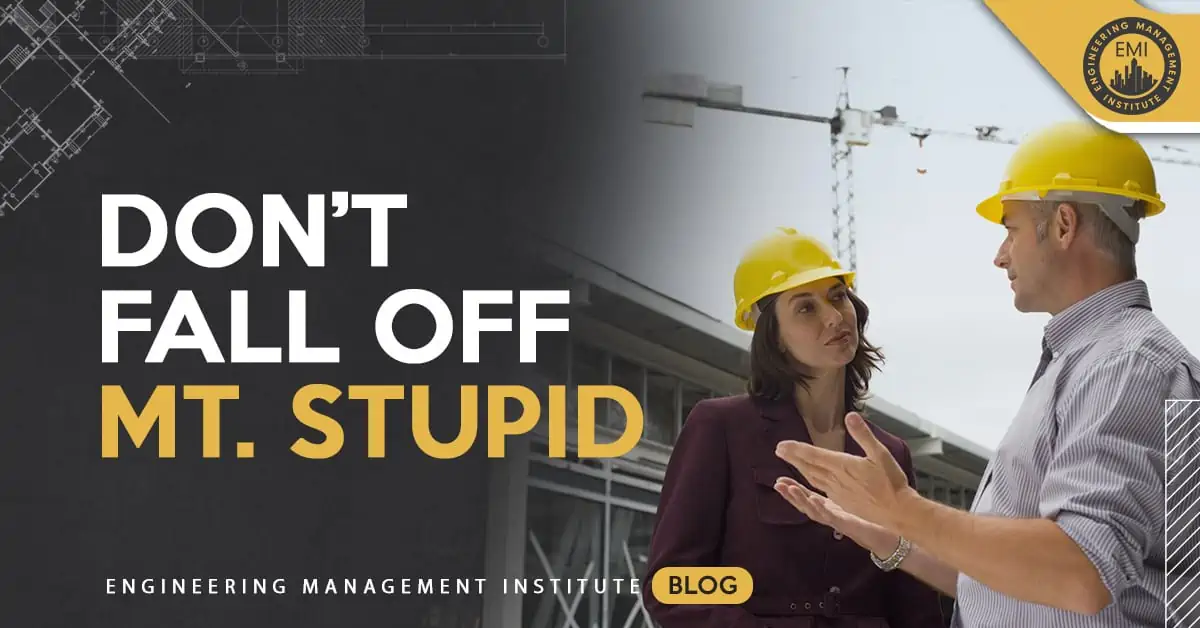This is a guest post by Jacob Valentien, PE
In my previous article, I spent some time writing about the four major components for optimizing your career development. I wanted this article to focus on the Experience and Continual Learning components. Have you ever heard of the Dunning-Kruger effect? Well, don’t feel bad, most folks have never heard of it, although I am willing to guess that if you have been in this industry for any time at all, you have experienced multiple points along the curve. The Dunning-Kruger effect is best summarized via a graph (see Figure 1) that maps the relationship between confidence and expertise.
Feel free to research the history and background for the basis of this effect here. I want to discuss how I have seen this effect rear its head in young engineers’ careers and the best ways to recognize where you might be on the curve to hopefully avoid falling off the cliff (which I have been told can be referred to as Mt. Stupid!). The graph below can be broken down into the following phases:

Figure 1: Reference – https://www.businesstimes.com.sg/brunch/not-so-blissful-ignorance-the-dunning-kruger-effect-at-work
-
Phase 1: Initial Learning Curve
-
Phase 2: Mt. Stupid
-
Phase 3: The Fall
-
Phase 4: Uncertainty
-
Phase 5: The Climb
-
Phase 6: Enlightenment
As we get started in our careers and start learning all of the things that we think we need to know in order to design and produce projects, we start to build confidence in what we can do and start to think that we know all that there is to know. Unfortunately, that is hardly ever the case — there is always more to learn.
We can put ourselves in a position where we think we know more than what our experience level permits, and that puts us in a jeopardized position with high potential to make a mistake. I typically see this occur with young engineers about year 3-4 in their careers. The best way to avoid falling off the cliff is to always try to stay aware of what it is that you know and what it is that you don’t know. This can be accomplished by staying immersed in continual learning efforts, meetings with an experienced mentor, and industry professional organizational involvement.
This process of gaining confidence, understanding that there is much more to learn, and slowly gaining that confidence back over time through valuable experience will occur many times throughout your career if you continue to expand your horizons and skills sets. The idea is that the sooner you realize that the depth of knowledge to be an expert is immense, the sooner you can start the slow and methodical climb to garner experience and become the enlightened expert who completely understands what they know and what they don’t know, all at the same time.
About the Author Jacob W. Valentien, PE

I hope you enjoyed this week’s post by guest author Jacob W. Valentien, PE. If you’re interested in your firm possibly joining the Civil Engineering Collective, please contact us here or call us at 800-920-4007.
I hope you’ll join us.
Anthony Fasano, P.E.
Engineering Management Institute
Author of Engineer Your Own Success


